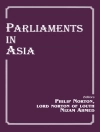Despite Washington’s military supremacy, its economic foundations have been weakening since the Vietnam war – accelerated by the great recession and credit-rating downgrade – and its global authority dented by the quagmires in Iraq and Afghanistan.
This book intervenes in the debates surrounding America’s status as an empire. It analyses Immanuel Wallerstein and others who argue that the US is in decline, to those who maintain that it remains a robust superpower. By explaining how America’s neo-imperial system of governance has been working since WWII, it links the US’s domestic and foreign vulnerabilities.
The Fall of the US Empire argues that the time has come to understand the US empire not by its power but by its systemic vulnerabilities of financialisation, resource depletion and environmental degradation.
Inhoudsopgave
Acknowledgements
List of Abbreviations
List of Tables, Graphs and Maps
Introduction
1. Global Fault-lines
2. Bretton Woods to the Abyss of Globalisation, 1944-1971
3. The Failure of Financial Statecraft [1], 1971-1991
4. The Failure of Financial Statecraft [2], 1991-2011
5. The Power-Shift to the Global East
6. Resources Depletion and Environmental Degradation
Conclusion
Bibliography
Index
Over de auteur
Bulent Gokay is Professor of International Relations and Head of the School of Politics, International Relations and Philosophy at Keele University. He is the author of The Politics of Caspian Oil (2001), Eastern Europe Since 1970 (2005, 2006), Soviet Eastern Policy and Turkey, 1920-1991 (2006), Politics of Oil: A Survey (2007), and Muslims and Communists in Post-Transition States (with Ben Fowkes, 2011). He is the founder of globalfaultlines.com.












